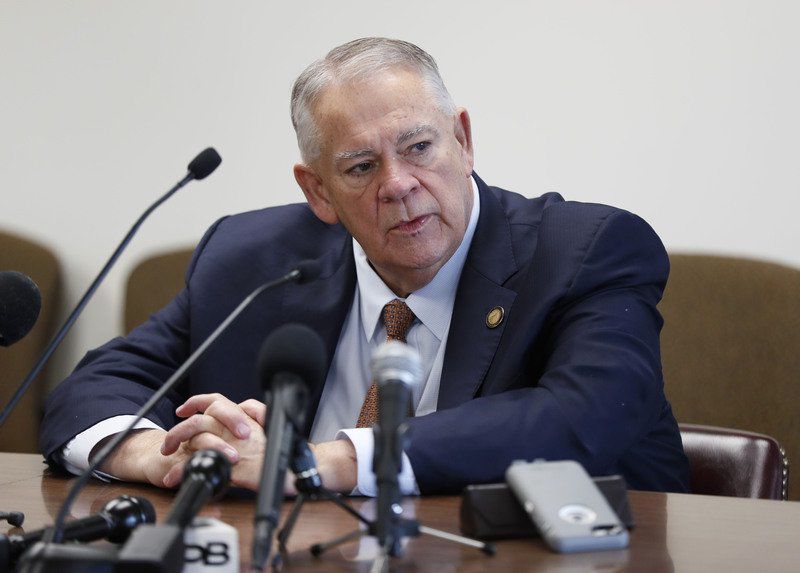Speaker backs rural broadband
Published 2:00 pm Friday, January 11, 2019

- Bob Andres | Atlanta Journal-Constitution via APGeorgia House Speaker David Ralston holds his annual pre-session press conference Thursday in Atlanta.
ATLANTA – A proposal to raise cash for rural broadband through a broadened communications tax has the backing of a key state lawmaker.
House Speaker David Ralston said this week he supports a plan to fund rural broadband by sticking a new tax on e-books, steaming services and other digital goods while lowering an existing tax on traditional services such as landlines and cable TV. The so-called Netflix tax stalled last year.
Trending
Bringing high-speed Internet to areas of rural Georgia that lack it is a pesky issue that has dogged state leaders for years. Last year, state lawmakers created a framework for a grant program but left it unfunded.
Ralston said addressing the issue will be among his top priorities this legislative session, which starts Monday, Jan. 14.
“I think that broadband is foundational to so much of what we are attempting to do to revitalize rural Georgia,” Ralston said in a wide-ranging press briefing with reporters.
“It’s foundational in the sense of being critical to education, business, medicine,” he said. “And until we bring it to rural Georgia, I think we’re always going to operate at a handicap in those areas.”
Ralston is one of the most powerful leaders under the Gold Dome, and he will begin his ninth year at the head of the House as both a new governor and lieutenant governor are sworn in.
Here are some other highlights from the press briefing:
Trending
– Kemp campaigned on a promise to give Georgia’s public school teachers a $5,000 raise, which would cost the state more than $600 million.
Ralston said state lawmakers would need to find a way to soften the blow to the budget, such as a gradual phasing-in of the pay bump.
“I don’t think anyone is opposed to doing all we can to make sure that we pay our teachers competitively,” Ralston said. “It’s just a question of what we can we do within our means and how quickly can we do it?”
– Gov.-elect Brian Kemp also pledged to sign a religious freedom measure that mirrors a federal law passed in the 1990s, but Ralston said he has little interest in seeing such a bill debated in his chamber.
Ralston called it a “solution in search of a problem.”
“I’m even more concerned that it’s the kind of issue that has real potential to divide us as a state,” Ralston said.
“I would just ask us to pause before we get into an issue that I think has the potential to sort of tear the fabric of this state,” he added.
Lawmakers passed a religious liberty bill in 2016, only for outgoing Gov. Nathan Deal to veto it under tremendous pressure from the business community.
Jill Nolin covers the Georgia Statehouse for The Valdosta Daily Times, CNHI’s newspapers and websites.





